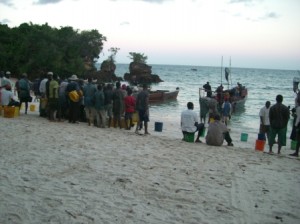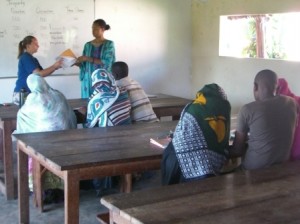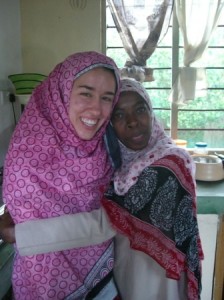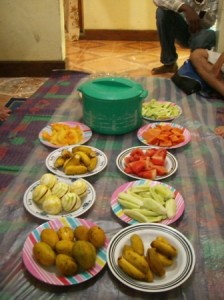Impressions of Zanzibar
Zanzibari culture was incredibly different from American culture. To some extent it had to do with the fact that their society is much more conservative, dominated by Islam, but also involved just a different outlook on life.

Time
Class was supposed to start at 2 PM every day in our school, but Zanzibaris run on a different time from Americans. For one, they actually start their clocks at sunrise, so 6 o’clock roughly equals noon. But that was not the biggest problem. Their concept of time is very fluid. Class starting at 2:00 meant that everyone showed up between 2:25 and 2:55, mostly closer to 2:55. This was incredibly frustrating at first because we’d start class only to have to start again and again as more people showed up. We eventually got the hang of it and started class at 3, but then they started coming at 3:15. It’s really a losing battle.

While this was irritating, did it not point to a problem with American society? We put such an emphasis on being on time, on not wasting time, etc, that we are so often rushed. Instead of bouncing around from event to event, the Zanzibaris took time to talk to their neighbors, to enjoy the scenery, and to spend time with their families. They eventually get everything done, but take life at a much more leisurely pace. I really wish my life was a little more like this; it was definitely a style from which I could learn.
Family & Friends
Their families were incredibly close and all lived near each other. More than that though, they were all really involved in each others’ lives. It was often difficult to tell whose children were whose because they all were so involved in their entire extended families. Babies were passed around from person to person, kids were disciplined by just about every adult, and everyone shared. In fact, the Zanzibaris were entirely selfless and generous, giving away the freshest fruit, the best juice, the tastiest cassava chips to their guests and their friends. They were also eager to spend time with people, and would take time out of their day to spend with everyone, regardless of how well they knew you.

Food
Food was much less utilitarian in Zanzibar. In fact, food was a real social event, a gathering of sorts. First of all, the women would spend upwards of three hours or more preparing a meal, sometimes six or more of them crowded around little stoves and charcoal pits in the kitchen. Was all this time really necessary? No. But, the preparation of the food was a social event for the women. The eating of the food was a social event for the entire group. Instead of relying on food just for sustenance, it was really the center of the day. It was luxurious to have such delicious, fresh food and fruits for lunch every day (the big meal in their culture), but even better was taking the opportunity to learn how they prepare food and how they gather around it. We should really slow down our meals and our meal preparation in America and make food that is fun to make and healthy to eat.
